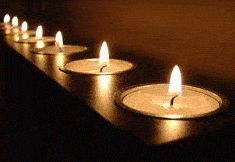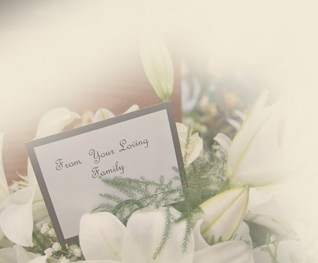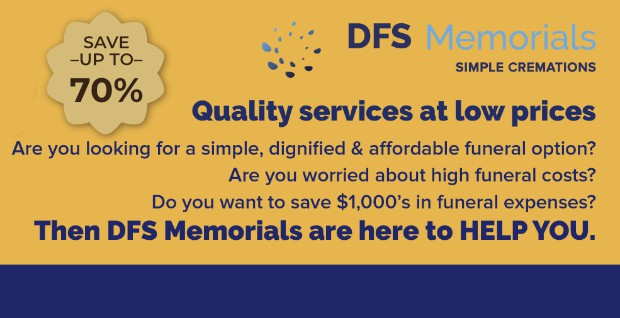You may have already heard of the term ‘life celebration.’ It is certainly becoming ingrained into our culture now. Life celebrations are ritualistic celebrations for life events, these can be births, engagements, marriages, and deaths.
Holding a Life Celebration either in lieu of or as an integral aspect of a funeral is becoming much more popular today.
This is changing our whole concept of what a funeral is. The once somber tradition, where we were all expected to stand around, look extremely upset, and weep, has changed. The funeral, which would have been held in a somewhat grand, grey, and stoic funeral home, or maybe the local church, would have adhered to convention at all costs.
The Life Celebration is completely reshaping this landscape. The shift towards life celebration is certainly being influenced by the baby boomer generation, who has sought new and different rituals for their rites of passage throughout their lives.
It is estimated that around 25% of the U.S. population is not affiliated with any church, and religiosity is declining in many states. Therefore, “Life Celebrations” offer a unique means by which to conduct befitting ceremonies that are non-religious.
What is a life celebration?
In terms of a funeral, the focus is more on making it a celebratory event, an uplifting tribute to a life lived. The onus is placed on bringing people together to celebrate the life of the deceased.
It is generally a more creative event where anything goes. Stories are told, music and video played, and readings, poems, prayers, or chants held. Props are often employed to signify special memories of the deceased.

Maybe they had a special hobby or dedicated their lives to a particular pursuit. Maybe the deceased had a favorite place where the celebration can be held. Often certain memorabilia are used throughout the life celebration to bring everyone together in a shared experience.
Life Celebrations have been known to include such things as printed T-shirts in memory of the deceased, themed food that was a favorite of the deceased, ritualistic lighting of candles, Chinese lanterns, or the release of balloons, butterflies, and doves.

A life celebration can be held either as part of a funeral service or conducted after a funeral or cremation.
A life celebration can also be held as part of a home funeral or even conducted as a ‘living memorial’ whilst your loved one is still able to participate.
What is a Celebrant?
A certified Life Celebrant has been specially trained to understand how to help families commemorate and celebrate life events. Celebrants can become certified, and although they may fill the role of the clergy at a funeral, they are not ordained by any faith.
A celebrant may include religious elements into a life celebration if you so choose, but they do not guide you in any faith aspect.
Training offered for Celebrants typically includes three elements:
- Wedding Celebrancy
- Funeral Celebrancy
- Life-Cycle Celebrancy – ceremonies for families & children
What does a Celebrant do?
A celebrant is trained to understand the theory of ritual, ceremonial structure, symbolism, and the culture of storytelling. This means they can pull from a wide array of knowledge and skills that focus entirely on how to create personalized ceremonies for people from all belief and value systems.
They generally focus on the detail and are experienced in extracting from surviving family what are the details, sometimes even the minutia detail, that can make a life celebration a special and uniquely personalized event. A celebrant, like a clergy, plays a role in the funeral that compliments the role of the funeral director.
A funeral celebrant will generally provide the following services:
- Meet and spend time with family to establish a ‘picture’ of the heart and soul of the deceased in order to best present their story.
- Help the family create a memorable Life Celebration service.
- Write the eulogy from the information you have provided.
- Deliver the eulogy and any other readings, prayers, etc., that you require.
- Coordinate the Life Celebration, introducing any other speakers or players.
- Assist you with selecting appropriate readings, prayers, and props to symbolize your loved one best.
- Make suggestions to assist you with memorialization ideas.
- Ensure that the Life Celebration created best reflects the legacy of the deceased.
- Deliver any graveside committal services.
- If necessary, a celebrant will also conduct annual or special day remembrance services.
How can holding a life celebration, or the services of a celebrant, enrich the funeral experience?
As just mentioned above, the role of the celebrant IS one that enriches the role of the funeral director. A funeral celebrant will focus entirely on the commemorative aspect of any funeral or memorial service, leaving the funeral director to focus on the logistics of the funeral itself.
Some funeral homes employ their own funeral celebrants these days, who will work closely with the family to plan the tribute aspect of the funeral service. Alternatively, families can choose to employ their own celebrant in lieu of using the services of a minister.
As cremation continues to gain popularity, this is presenting a greater opportunity for a family to arrange and host their own life celebration memorial event. Many choose to have a funeral home conduct the cremation and then arrange their own life celebration event with the cremated remains at a later date.
A simple direct cremation service can now be arranged for as little as $750 – $995 in most locations. Visit the DFS Memorials Network of Affordable Cremation Service Providers to find a location and price near you.
The fact that the life celebration can be held at a period of time after the bereavement also means that the family has had time to adjust to their immediate grief, and therefore enables a more celebratory and uplifting memorial to be conducted when the time is right. Enrichment is a personal thing.
How we all choose to deal with death and grief is very different. Opting to choose a life celebration instead of a traditional funeral service is all about choice. Remember, as much as funerals are for the dead, the deceased is not present to participate, and the rituals we perform as part of the death care process are important for the living. Many believe that a funeral ritual is a key aspect of ‘closure’ for those left behind.
The question is more about what kind of closure you desire. What do you want your very last memory of your lost loved one to be like?
How do I find a Celebrant?
There are presently over 1,600 certified celebrants in North America. As I have mentioned, some funeral homes today now actually employ their own funeral celebrants. If the funeral home does not have a celebrant on staff, they may very well know of one locally that officiates at funerals.

If you have previously conducted a direct cremation and are now looking for a celebrant to help host a life celebration memorial service, we have included some resources below to help you locate a celebrant.
How much do the services of a celebrant cost?
As with anything when it comes down to quoting prices, this can vary so much depending upon what your specific needs are, what celebrants are available in your area, whether your funeral home offers this service, and how much time is available for planning.
From the research I have conducted, you can expect to pay anything between $200 and $1,000 for the services of a certified Life Celebrant. A freelance celebrant can typically charge around $450 and would commit approximately 5 – 10 hours of time with the family to coordinate services.
Can I arrange my own life celebration?
Absolutely! And what a wonderful idea. Just imagine what fun you can have planning how all your relatives and friends are going to celebrate you! There are even websites and Apps that now facilitate you planning out your own wishes for when the time comes.
This obviously saves the family from having to pull all this together on your demise. Plus, it does mean that YOU have created the perfect celebration of your life that you feel best reflects you….or certainly how you want people to remember you!
Ideas on how to stage a life celebration.
Not only can you plan your own life celebration, but there is no reason why you cannot co-ordinate the life celebration of your loved one yourself, without the services of a celebrant.
You need a member of the family who feels strong enough (emotionally) to lead the services. Gather together memorabilia concerning your loved one and organize a memory board or table. Perhaps create your own memorial candles or lanterns. Arrange to give everyone some memory seeds to plant.
Or arrange a theme that best connotes the deceased, be it sport, food, or a hobby. The sky really is the limit, and the more creative, the more memorable it will be.
The Internet, of course, provides a great tool to be able to find suitable readings, poems, or quotes, and technology can even help you create your own slideshow or DVD to commemorate the event.
Remember, it is all about creating a ritual that tells a story and represents, in as concise a way as possible, the essence of the person deceased.
Related Articles:
Resources:



